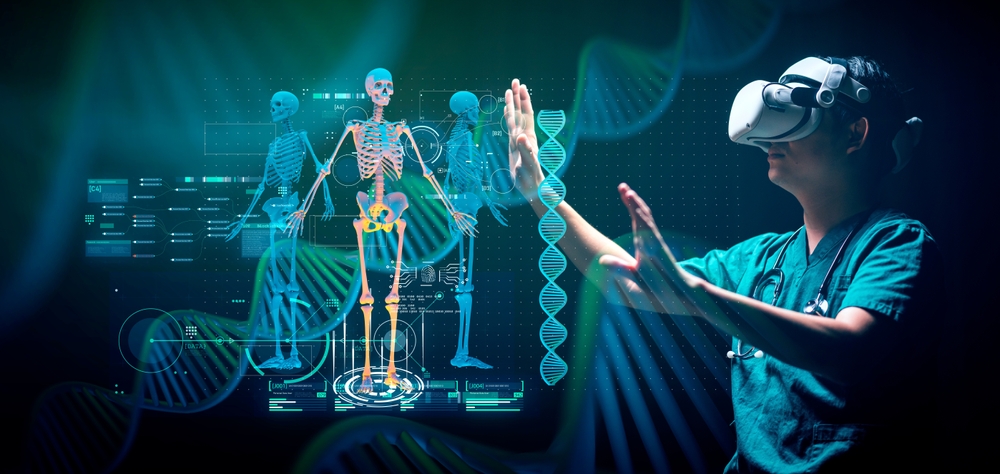
AI’s Role in Revolutionizing Healthcare: Early Detection and Personalized TreatmentsAI’s Role in Revolutionizing Healthcare: Early Detection and Personalized Treatments Artificial intelligence (AI) is rapidly transforming the healthcare industry, bringing about groundbreaking advancements in disease detection and personalized treatments. Here are key ways AI is revolutionizing these aspects of healthcare: Early Detection: * Machine Learning Algorithms: AI algorithms can analyze vast amounts of medical data to identify subtle patterns and anomalies that may indicate early signs of disease. * Automated Imaging Analysis: AI-powered systems can analyze medical images, such as MRIs and CT scans, with greater accuracy and speed than human radiologists, enabling earlier detection of abnormalities. * Biosensor Monitoring: AI-enabled biosensors can continuously monitor vital signs and other physiological parameters, providing real-time data for early detection of health issues. Personalized Treatments: * Predictive Analytics: AI can use historical medical data to predict individual risk factors and disease trajectories, enabling personalized treatment strategies. * Personalized Drug Development: AI can accelerate drug discovery and development by identifying promising candidates and tailoring treatments to specific genetic profiles. * Virtual Care and Telemedicine: AI-powered chatbots and virtual assistants provide personalized guidance, triage, and support to patients, facilitating remote care and tailored interventions. Specific Examples: * Early Detection of Cancer: AI algorithms have been developed to detect early signs of various cancers, including skin cancer, lung cancer, and breast cancer. * Tailored Treatment for Diabetes: AI can analyze patient data to determine the optimal insulin dosage and medication regimen, leading to improved blood sugar control. * Precision Medicine for Genetic Diseases: AI can identify genetic variants and mutations associated with diseases, enabling the development of personalized treatments and therapies. Benefits of AI in Healthcare: * Improved Patient Outcomes: Early detection and personalized treatments enhance the chances of successful recovery and reduce the risk of complications. * Reduced Healthcare Costs: AI can streamline diagnostic processes, reduce unnecessary expenses, and improve treatment efficiency. * Increased Access to Healthcare: AI-powered virtual care and telemedicine expand access to healthcare services for remote and underserved communities. Challenges and Ethical Considerations: * Data Privacy and Security: AI requires vast amounts of patient data, which must be handled responsibly to protect patient privacy. * Algorithm Bias: AI algorithms can be biased if trained on incomplete or biased data, leading to inaccurate predictions and unfair outcomes. * Ethical Implications: AI can raise ethical questions about data ownership, transparency, and informed consent. In conclusion, AI is revolutionizing healthcare by enabling early detection of diseases and tailoring treatments to individual needs. As AI technologies continue to advance, we can expect further advancements in healthcare, leading to improved patient outcomes and a more personalized healthcare experience.
Posted inNews